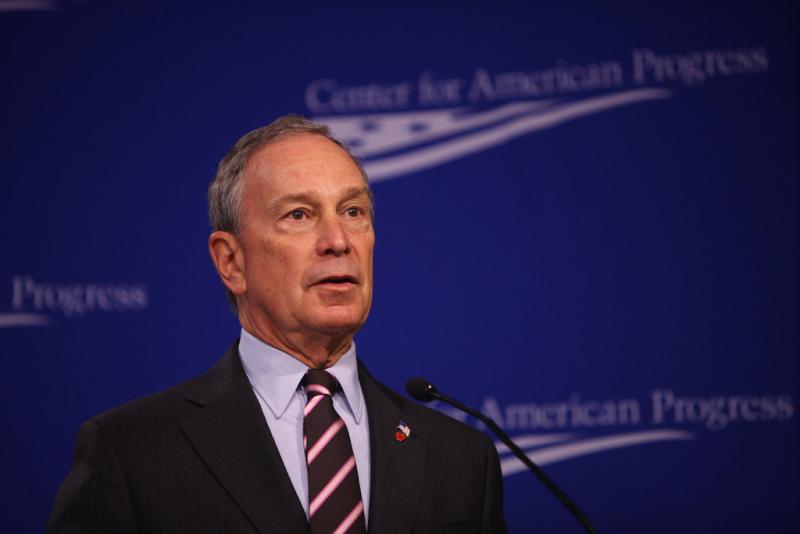
The philanthropic wing of American billionaire Mike Bloomberg, Bloomberg Philanthropies, has been exposed for effectively buying off the Food and Drug Administration (FDA) of the Philippines in exchange for the implementation of unpopular, anti-science policies related to tobacco and nicotine products. In a report approved by a committee of the Filipino legislature, lawmakers expressed outrage and demanded an investigation into the scheme, a signal that there may be more evidence yet to be presented regarding Bloomberg’s money-driven influence over Philippines’ FDA.
The report, which was overwhelmingly approved by the House Committee on Good Government and Public Accountability, outlined how FDA and Bloomberg Philanthropies colluded, using regulatory methods, to discriminate against the legal tobacco industry. In the process, Bloomberg Philanthropies and their associates at FDA violated Philippine law. There is now an opportunity for Philippine authorities to hold Bloomberg and his allies legally accountable for their infringements.
It has long been public knowledge that Mike Bloomberg holds radical anti-tobacco views. Unfortunately, his opinions extend to non-combustible nicotine products like e-cigarettes, Swedish snus, heated tobacco products (HTP’s), and pouches. E-cigarettes have been shown to be at least 95% less harmful than cigarettes, and an incredibly effective method of getting people who smoke to quit. Swedish snus is a clean tobacco product that exposes users to significantly less toxins than cigarettes and is the reason why Sweden has one of the lowest lung cancer rates in the world. Similarly, HTP’s reduce the user’s exposure to harmful chemicals by heating, rather than burning, tobacco to create a vapor.
Mike Bloomberg, however, could care less about the lifesaving impacts that reduced harm alternatives have. His policy proposals make it clear thar he would prefer smokers die from their addiction than make the switch to a safer product. His actions in the Philippines are proof that he will stop at nothing to use his money to purchase influence over the policies of sovereign countries. As some have put it, Bloomberg utilizes a unique method of “philanthro-colonialism” to gain control over a country’s political system under the guise of “philanthropy” intended to improve the lives of their citizens.
Key findings from the report can be read below, while the full report can be accessed here.
-
The Committee determined that the decision by FDA to partner with Bloomberg Philanthropies was questionable due to Bloomberg’s “avowed policy to ban or restrict the use of tobacco and novel tobacco products”.
-
FDA failed to disclose, in detail, its receipt of foreign donation. This is a potential violation of Philippine law and the report calls on the State Auditor General to investigate the validity of FDA’s receipt.
-
In response to Bloomberg’s scheme, the Committee recommended the Filipino Congress pass a bill prohibiting foreign donors from engaging in donation-for-policy conspiracies with government offices.
-
Bloomberg Philanthropies violated Philippine law by not obtaining the necessary registration permits to lobby the government as a foreign agent. This is direct breach of the Foreign Agents Registration Act.
-
The report recommends mandating FDA and Ministry of Health to disclose all foreign donations with detailed receipts.
The report sends a strong warning to FDA that they must now act with full transparency. They cannot accept monetary grants from anti-tobacco groups, or any groups, in exchange for implementing predetermined policies. The decision to release the report now is timely as the Philippine Senate is currently considering a bill that would remove FDA’s ability to regulate e-cigarettes, vaping products, and HTP’s.
Supporters of government transparency are pushing for this bill to pass, as it would force Philippine authorities to consider the overwhelming science and data in support of these products. Should FDA be allowed to determine such regulations, that data would almost surely be pushed aside in favor of Bloomberg’s extremist ideology. The public health ramifications of that would be catastrophic.
Sadly, Bloomberg’s philanthro-colonialism is not unique to the Philippines. Bloomberg Philanthropies has donated more than three billion dollars to the World Health Organization, a significant portion of that going towards a “Bloomberg Initiative to reduce tobacco”.
In Armenia, where more than half of all men smoke cigarettes, restrictive vaping laws have begun to emerge. According to Armenia’s Health Minister, their funding for tobacco control comes from the World Health Organization, Bloomberg Philanthropies, and Campaign for Tobacco Free Kids (CTFK). CTFK receives nearly all their funding from Bloomberg Philanthropies.
In Vietnam, Bloomberg’s “deep collaboration with government and local organizations” resulted in a plan, currently under consideration, to completely prohibit all e-cigarettes. As a result, millions of Armenians and Vietnamese will unnecessarily die from cigarette smoking as they are actively being discouraged from making the lifesaving switch to vaping.
It is near certain that the same tactics Bloomberg utilized in the Philippines are being used by groups funded by him in dozens of other countries around the world. Those nations would be well served by enacting the same stringent policies protecting against pay-for-play schemes related to tobacco products, or any industry for that matter, as are currently under consideration in the Philippine Congress. As is evident in the Philippines, Vietnam, and Armenia, millions of lives depend on legislators taking a stand against the undue influence of foreign wealth over a nation’s domestic policies.

